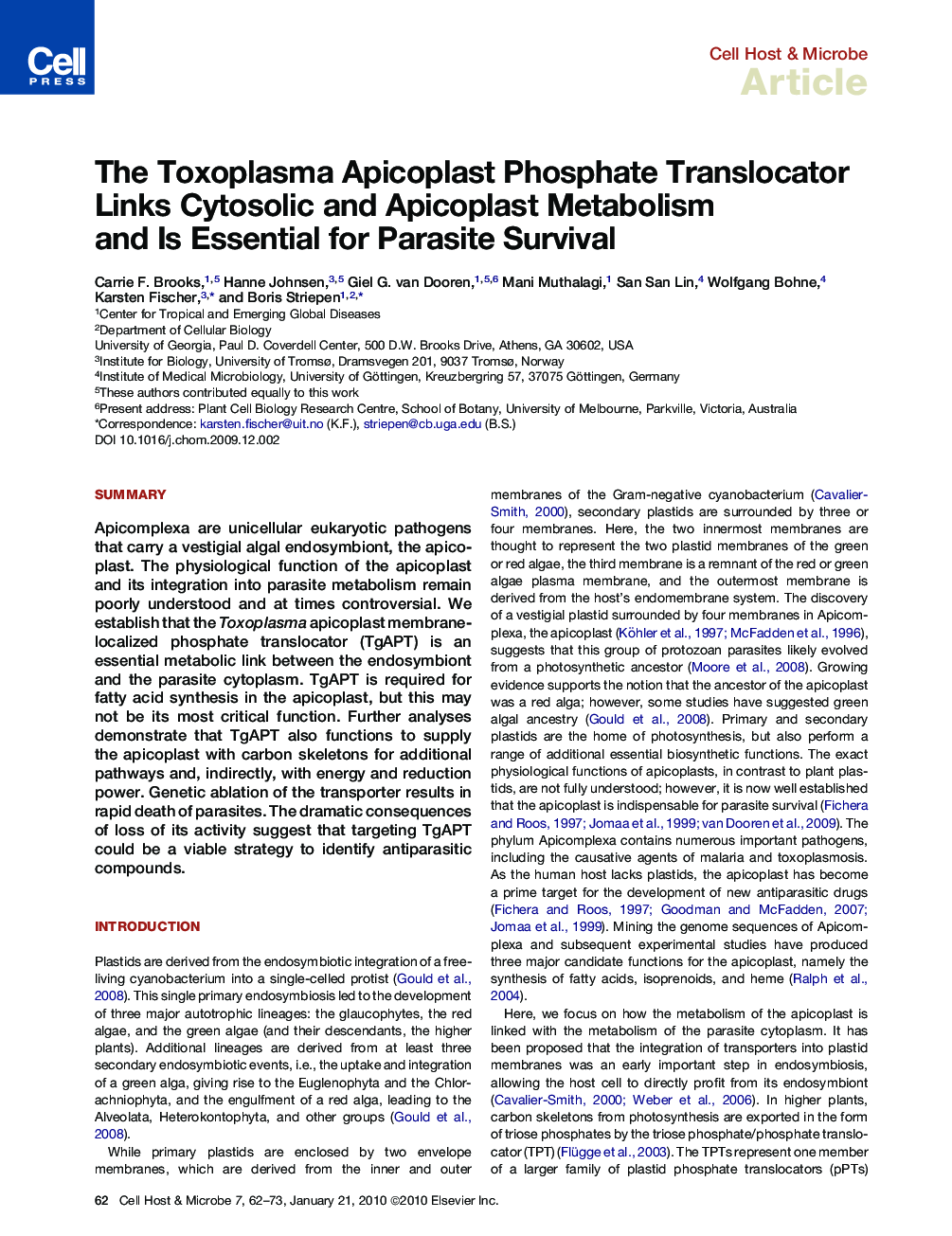| Article ID | Journal | Published Year | Pages | File Type |
|---|---|---|---|---|
| 4361470 | Cell Host & Microbe | 2010 | 12 Pages |
SummaryApicomplexa are unicellular eukaryotic pathogens that carry a vestigial algal endosymbiont, the apicoplast. The physiological function of the apicoplast and its integration into parasite metabolism remain poorly understood and at times controversial. We establish that the Toxoplasma apicoplast membrane-localized phosphate translocator (TgAPT) is an essential metabolic link between the endosymbiont and the parasite cytoplasm. TgAPT is required for fatty acid synthesis in the apicoplast, but this may not be its most critical function. Further analyses demonstrate that TgAPT also functions to supply the apicoplast with carbon skeletons for additional pathways and, indirectly, with energy and reduction power. Genetic ablation of the transporter results in rapid death of parasites. The dramatic consequences of loss of its activity suggest that targeting TgAPT could be a viable strategy to identify antiparasitic compounds.
► Toxoplasma apicoplast phosphate translocator links cytosolic and apicoplast metabolism ► TgAPT is required for fatty acid synthesis in the apicoplast ► TgAPT functions to supply the apicoplast with carbon, energy, and reduction power ► Genetic ablation of the transporter results in rapid death of parasites
